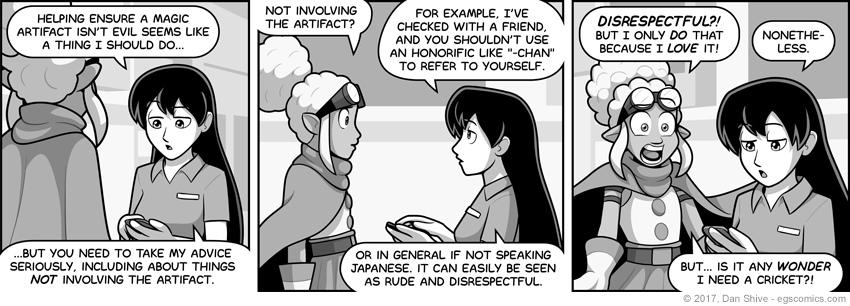Commentary
EDIT: It's been pointed out to me that an exception to the "if not speaking Japanese" panel two would naturally be Japanese translated into English, which makes sense to me. What's expressed via honorifics can easily be lost in English translation, and leaving them in can be the preferable option. That's quite a bit different from speaking English and tossing in honorifics because one thinks they sound cool, but it's worth noting.
-----
Like Susan would agree to be Hanma's moral compass and not point this out.
Sidenote: I very nearly typed "royal compass" for some inexplicable reason.
I feel strongly about how Susan puts "can easily be seen as" in panel two. How one feels about such things is subjective, and even if you get two identical twins who grew up in the same home together, you could wind up with one feeling strongly about something, and the other incapable of caring less.
Opinions will vary even among those with things in common, and just saying "______ people find this offensive" feels to me like a stereotype unto itself.
Granted, people who say that could easily understand exceptions can exist, what I'm saying could easily be seen as nitpicking things understood by most to have potential exceptions, and some opinions regarding what is and isn't offensive are so commonly held by the mass majority of a given group that the exceptions are only slightly less rare than Bigfoot.
I think how we say things can affect how we think things, however, and I'm big on being as specific as I can be (while at least trying not to go overboard), so I much prefer phrasing such things as in panel two.




